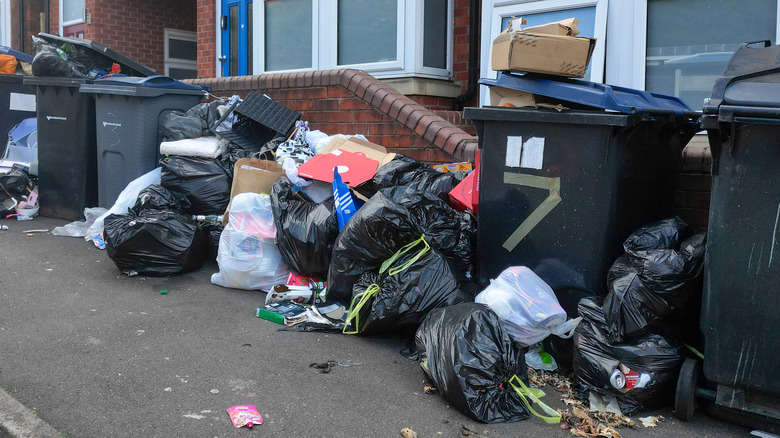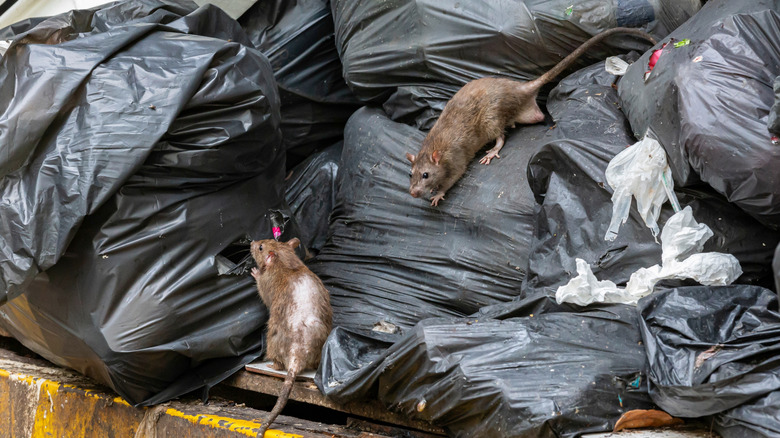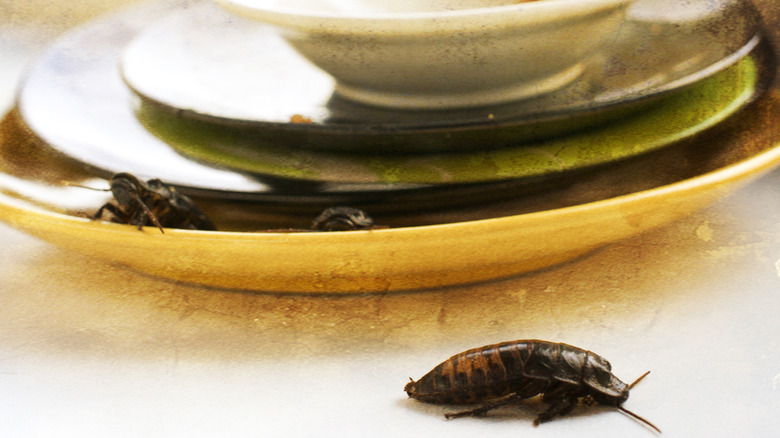Philadelphia's Pest Control Problem Is About To Get Out Of Control. Here's What To Know
Even though Philadelphia sanitation workers have reached a deal to end a strike that prevented curbside residential trash pickup, the lingering effects of the stoppage in trash collection could lead to ongoing pest control problems. The strike began July 1 and was scheduled to end with normal collection of garbage starting again on July 14. With July representing the highest average temperatures during the year in Philadelphia, rodents and pests are more aggressive about foraging for food because of good weather and people spending more time preparing and eating food outdoors.
The problem could soon get out of control because, during summer, rodents are more likely to seek out unsecured garbage cans and compost piles as they forage for food. The piling of uncollected trash during the strike in Philadelphia increased odors and brought rodents and other wildlife to the areas. Proper disposal of waste is important for reducing potential rodent infestations.
Even with normal garbage collection resuming about two weeks after the strike started, it may take a long time for the city to recover from the introduction of rodent and insects. Even one week of uncollected trash can create pest infestations that are difficult to recover from. The extra rats drawn to the area could have a litter of 5 to 10 pups within about three weeks of gestation. Mosquitoes, flies, and cockroaches may see significant population increases in the areas that saw piles of uncollected trash. Learn more about what you can do to try to keep pests away from your residence or business as trash collection returns to normal.
What can you do to prevent an infestation of rodents at your residence from the trash strike
During the strike, Philadelphia set up 63 temporary garbage drop-off sites across the city for residents to use. These were shut down after the announcement that the strike ended, but it's possible people will still dump trash in those areas, which may continue to draw pests to the locations. Even only two weeks of uncollected trash likely will cause rodent populations to grow exponentially in the neighborhoods where the trash piled up.
These drop-off sites were located within neighborhoods in the city, and nearby residents were given no warning about the creation of the temporary sites. Some of those nearby residents believe the rodents will begin moving toward homes in the area to look for food and shelter after the trash disappears from the temporary sites. Aggressive professional pest control services may be necessary in these neighborhoods.
Beyond hiring professionals, local homeowners can take a few steps for trying to keep the suddenly displaced rodents out of their homes and yards. An inexpensive solution to repel rodents from a yard is to keep the grass mowed, clean up compost areas, and secure trash cans. You might need to try some tips and tricks to keep mice out of your home, too, including sealing gaps around doors and windows where a mouse could squeeze inside. Mice can fit through a hole as small in diameter as a pencil. Clean the house and seal any food sources in containers to make your home as uninviting to a displaced mouse as possible.
How to prevent insect problems at your home related to the trash strike in Philadelphia
Insects are also drawn to trash bags left unattended outdoors, finding food sources in the uncollected trash in Philadelphia. Cockroaches are especially drawn to garbage, looking for food scraps. Cockroaches will breed inside the trash bags, discarded containers, and garbage containers. They can breed rapidly when large numbers of them are drawn to piles of unattended garbage.
Flies can multiple quickly around unattended garbage, too. You should rinse and empty trash cans at least once a week to keep insects away, meaning the two-week garbage strike is sure to draw large numbers of flies to the neighborhoods where the temporary collection sites existed. Flies lay eggs in the rotting waste and trash because it gives the hatched larvae an immediate source of food. Maggots can appear in a pile of trash within 24 hours of the flies laying eggs.
Pest control professionals can help with both flies and cockroaches when they invade your home. You can also take steps to naturally keep flies out of your house and cockroaches away. For flies, you can effectively use light traps that draw the flies inside a box before electronically killing them. Sticky traps also work for eliminating flies. To prevent cockroaches from migrating from the Philadelphia temporary trash collection sites toward your nearby home, remove piles of wood and vegetation from near the home's foundation. Keep pet food in sealed containers when the pets are not actively eating. Don't leave dirty dishes in the sink to make your home as uninviting to the roaches as possible.


